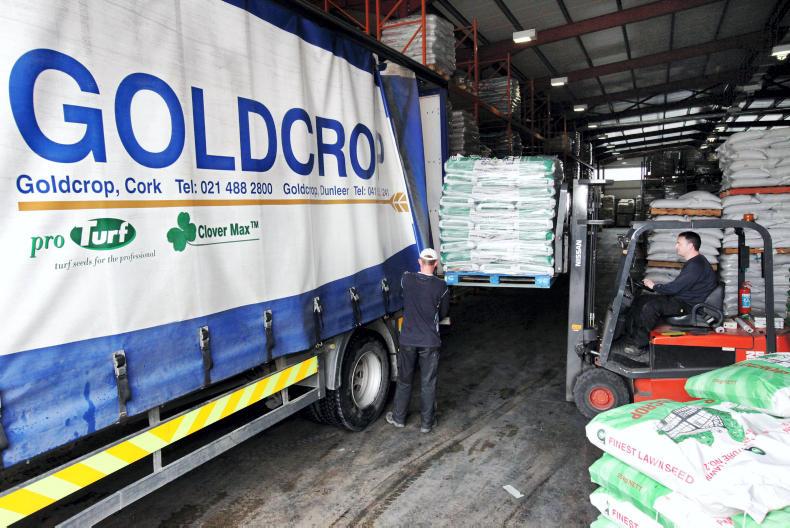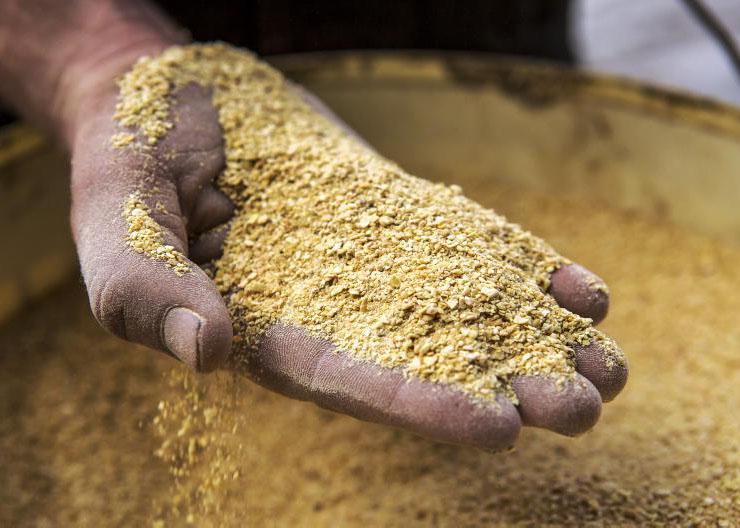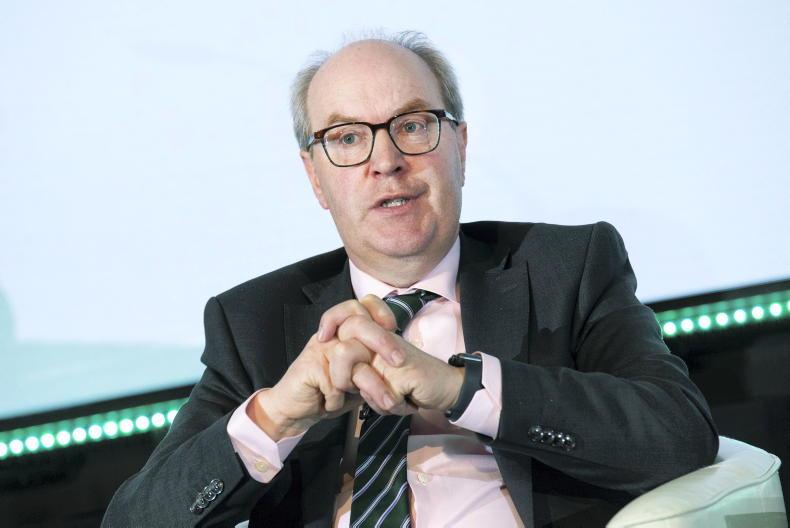Irish seed companies are stockpiling supplies, as uncertainty over Brexit grows.
With much of the certified forage and cereal seed sold in Ireland originating from the UK, Irish supplies are hedging their bets.
Concern
Germinal buys in nearly all of its seed from its sister company in England, Germinal Agriculture GB.
General manager Dermot Campion is very concerned about what lies ahead.
“Usually in February we would have one third of our yearly stock bought in for the year. This year, we have bought our entire stock for 2019 already,” he told the Irish Farmers Journal.
Chances
“We can’t take any chances. If there is a high demand for seed in the autumn, we don’t want supplies stuck in a port across the Irish Sea.”
It is uncertain that we will be able to buy in this year’s winter cereal seed
“We are stockpiling in seed of all types, from the brassicas to clovers and even lawn seed.
"We’ve been doing this since before Christmas and will continue to do this until 29 March. Stockpiling seed will buy us some time at least.”
Fearful
Dave Barry of Goldcrop is also fearful of how a no-deal scenario will affect its cereal crop supplies.
“From a forage crop point of view, there won’t be a huge effect on us.
"Most of the seed we buy in comes from continental producers in the likes of Denmark and Holland,” he explained.
“Most of our forage seed comes from continental Europe, but some of our cereal crop seed does come from England.
Varieties
"We haven’t been stockpiling, as spring varieties are already bought in and winter varieties have not yet been produced in England – and won’t be until July or August,” he said.
“If the UK crashes out of the EU under a no-deal, trade will be dealt with under OECD standards, which will have to be negotiated.
"The fear is that these negotiations will drag on and it is uncertain that we will be able to buy in this year’s winter cereal seed.”
Read more
Exceptional conditions enable field work
‘We can’t compete’ – suckler farmers react to tariffs in no-deal Brexit
No-deal Brexit tariffs could increase food prices by 45%, retailers warn
Irish seed companies are stockpiling supplies, as uncertainty over Brexit grows.
With much of the certified forage and cereal seed sold in Ireland originating from the UK, Irish supplies are hedging their bets.
Concern
Germinal buys in nearly all of its seed from its sister company in England, Germinal Agriculture GB.
General manager Dermot Campion is very concerned about what lies ahead.
“Usually in February we would have one third of our yearly stock bought in for the year. This year, we have bought our entire stock for 2019 already,” he told the Irish Farmers Journal.
Chances
“We can’t take any chances. If there is a high demand for seed in the autumn, we don’t want supplies stuck in a port across the Irish Sea.”
It is uncertain that we will be able to buy in this year’s winter cereal seed
“We are stockpiling in seed of all types, from the brassicas to clovers and even lawn seed.
"We’ve been doing this since before Christmas and will continue to do this until 29 March. Stockpiling seed will buy us some time at least.”
Fearful
Dave Barry of Goldcrop is also fearful of how a no-deal scenario will affect its cereal crop supplies.
“From a forage crop point of view, there won’t be a huge effect on us.
"Most of the seed we buy in comes from continental producers in the likes of Denmark and Holland,” he explained.
“Most of our forage seed comes from continental Europe, but some of our cereal crop seed does come from England.
Varieties
"We haven’t been stockpiling, as spring varieties are already bought in and winter varieties have not yet been produced in England – and won’t be until July or August,” he said.
“If the UK crashes out of the EU under a no-deal, trade will be dealt with under OECD standards, which will have to be negotiated.
"The fear is that these negotiations will drag on and it is uncertain that we will be able to buy in this year’s winter cereal seed.”
Read more
Exceptional conditions enable field work
‘We can’t compete’ – suckler farmers react to tariffs in no-deal Brexit
No-deal Brexit tariffs could increase food prices by 45%, retailers warn









SHARING OPTIONS